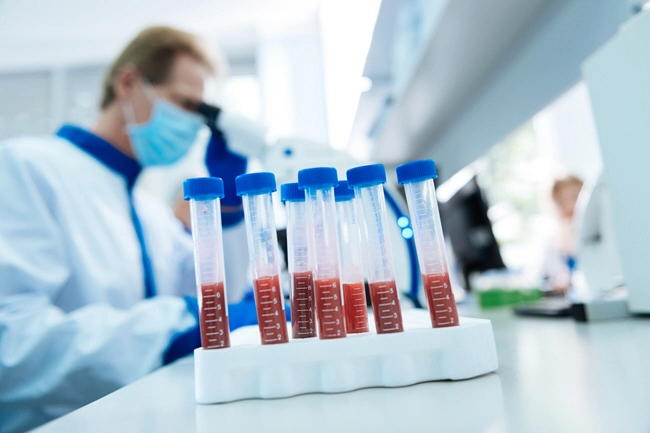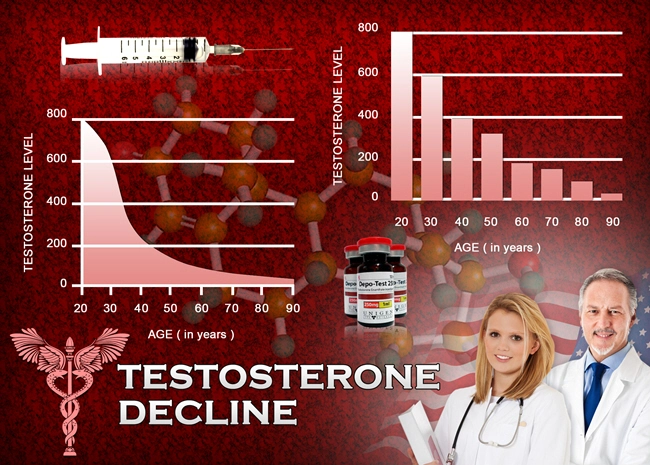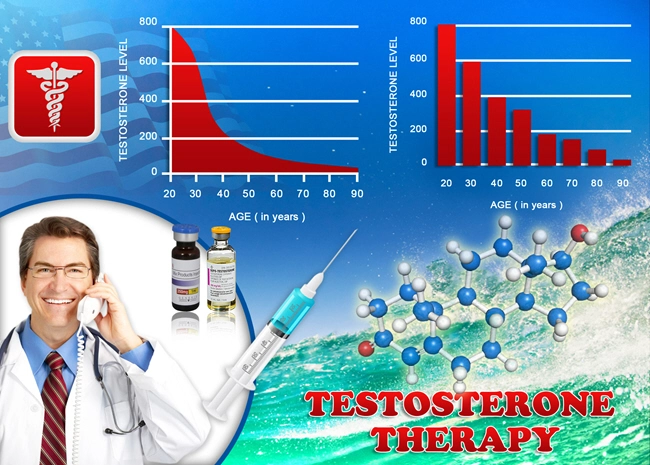
Introduction to Depo Testosterone
Depo Testosterone, a product of Pfizer, is an injectable form of testosterone cypionate used primarily to treat conditions caused by low testosterone levels in men. This hormone therapy is crucial for those experiencing symptoms such as decreased libido, fatigue, and mood disturbances. Understanding how to monitor and adjust the dosage of Depo Testosterone is essential for maximizing its benefits while minimizing potential side effects.
Initial Dosage and Administration
The typical starting dose of Depo Testosterone is 100 mg administered intramuscularly every week or 200 mg every two weeks. The exact dosage and frequency can vary based on individual patient needs and responses. It is administered by a healthcare professional to ensure proper injection technique and site rotation, which helps prevent complications such as abscesses or skin irritation.
Monitoring Testosterone Levels
Regular monitoring of testosterone levels is crucial to ensure the therapy is effective and safe. Blood tests should be conducted approximately 7-10 days after an injection to measure peak levels, and just before the next injection to assess trough levels. This helps in determining whether the dosage needs adjustment. The target range for total testosterone levels is generally between 300 and 1000 ng/dL, although optimal levels can vary based on individual health goals and symptoms.
Adjusting Dosage Based on Symptoms and Levels
If testosterone levels are consistently outside the target range or if symptoms persist, dosage adjustments may be necessary. An increase in dosage might be required if levels are too low or if symptoms such as fatigue and low libido continue. Conversely, if levels are too high or if side effects such as acne, increased aggression, or erythrocytosis (elevated red blood cell count) occur, a reduction in dosage or an extension of the interval between injections may be warranted.
Potential Side Effects and Management
While Depo Testosterone can significantly improve quality of life, it is not without potential side effects. Common issues include injection site reactions, mood swings, and changes in cholesterol levels. More serious concerns, such as an increased risk of cardiovascular events, require careful monitoring and management. Regular check-ups with a healthcare provider are essential to manage these risks effectively.
Long-Term Considerations
Long-term use of Depo Testosterone necessitates ongoing evaluation of its impact on various health parameters. Bone density, prostate health, and cardiovascular health should be monitored regularly. Additionally, the psychological effects of testosterone therapy, including its impact on mood and cognitive function, should be considered and addressed as part of a holistic approach to treatment.
Lifestyle and Adjunctive Therapies
In conjunction with Depo Testosterone therapy, lifestyle modifications can enhance its effectiveness. Regular exercise, a balanced diet, and adequate sleep are fundamental. Some patients may benefit from adjunctive therapies such as vitamin D supplementation, which can support bone health, or counseling to address any psychological impacts of hormonal changes.
Conclusion
Depo Testosterone from Pfizer offers a valuable solution for American males struggling with low testosterone. By closely monitoring hormone levels, adjusting dosages as needed, and managing potential side effects, men can achieve significant improvements in their quality of life. It is imperative to work closely with healthcare providers to tailor the therapy to individual needs and ensure long-term health and well-being.
Contact Us Today For A Free Consultation
Dear Patient,
Once you have completing the above contact form, for security purposes and confirmation, please confirm your information by calling us.
Please call now: 1-800-380-5339.
Welcoming You To Our Clinic, Professor Tom Henderson.

- Depo Testosterone: Enhancing Sexual Health in American Men with Pfizer's Hormone Therapy [Last Updated On: March 16th, 2025] [Originally Added On: March 16th, 2025]
- American Men's Experiences with Pfizer's Depo Testosterone Therapy: Benefits and Challenges [Last Updated On: March 17th, 2025] [Originally Added On: March 17th, 2025]
- Depo Testosterone Therapy: Tailoring Treatment for American Males with Hypogonadism [Last Updated On: March 17th, 2025] [Originally Added On: March 17th, 2025]
- Depo Testosterone: Enhancing Men's Health with Pfizer's Injectable Hormone Therapy [Last Updated On: March 17th, 2025] [Originally Added On: March 17th, 2025]
- Depo Testosterone: Efficacy, Safety, and Patient Satisfaction in American Males with Hypogonadism [Last Updated On: March 18th, 2025] [Originally Added On: March 18th, 2025]
- Depo Testosterone: Challenges and Solutions for American Men's Access to TRT [Last Updated On: March 18th, 2025] [Originally Added On: March 18th, 2025]
- Depo Testosterone: Psychological Impacts and Management in American Men [Last Updated On: March 18th, 2025] [Originally Added On: March 18th, 2025]
- Depo Testosterone: Benefits, Risks, and Management for American Males [Last Updated On: March 20th, 2025] [Originally Added On: March 20th, 2025]
- Depo Testosterone Therapy: Innovations and Future in American Male Healthcare [Last Updated On: March 21st, 2025] [Originally Added On: March 21st, 2025]
- Depo Testosterone: Managing Chronic Conditions in American Men with Low Testosterone [Last Updated On: March 21st, 2025] [Originally Added On: March 21st, 2025]
- Depo Testosterone: Managing Delayed Puberty in American Males [Last Updated On: March 22nd, 2025] [Originally Added On: March 22nd, 2025]
- Depo-Testosterone's Impact on Weight Management in American Males: Clinical Insights [Last Updated On: March 22nd, 2025] [Originally Added On: March 22nd, 2025]
- Depo Testosterone: Enhancing Energy and Vitality in American Men [Last Updated On: March 22nd, 2025] [Originally Added On: March 22nd, 2025]
- Depo-Testosterone: Benefits and Risks for Older American Men's Health [Last Updated On: March 22nd, 2025] [Originally Added On: March 22nd, 2025]
- Depo Testosterone: Benefits and Considerations for Transgender American Males [Last Updated On: March 22nd, 2025] [Originally Added On: March 22nd, 2025]
- Depo Testosterone: Enhancing Cognitive Function in American Males [Last Updated On: March 23rd, 2025] [Originally Added On: March 23rd, 2025]
- Depo Testosterone: Managing Hair Loss Risks in American Men on TRT [Last Updated On: March 23rd, 2025] [Originally Added On: March 23rd, 2025]
- Depo Testosterone: Impacts on Sleep and Management Strategies for American Men [Last Updated On: March 23rd, 2025] [Originally Added On: March 23rd, 2025]
- Depo Testosterone: Benefits, Risks, and Prostate Health Considerations [Last Updated On: March 23rd, 2025] [Originally Added On: March 23rd, 2025]
- Depo Testosterone: Effects on Male Fertility and Preservation Strategies [Last Updated On: March 23rd, 2025] [Originally Added On: March 23rd, 2025]
- Depo Testosterone's Impact on Joint Health in American Males: Benefits and Risks [Last Updated On: March 24th, 2025] [Originally Added On: March 24th, 2025]
- Depo Testosterone: Enhancing Mood and Well-being in American Males with Low Testosterone [Last Updated On: March 24th, 2025] [Originally Added On: March 24th, 2025]
- Depo Testosterone: Managing Adolescent Hypogonadism with Informed Care and Monitoring [Last Updated On: March 24th, 2025] [Originally Added On: March 24th, 2025]
- Depo Testosterone: Benefits, Risks, and Legal Issues for American Male Athletes [Last Updated On: March 24th, 2025] [Originally Added On: March 24th, 2025]
- Depo Testosterone: Effects on Blood Sugar Levels in American Males [Last Updated On: March 25th, 2025] [Originally Added On: March 25th, 2025]
- Depo Testosterone: Enhancing Endurance in American Male Athletes - Benefits and Risks [Last Updated On: March 25th, 2025] [Originally Added On: March 25th, 2025]
- Navigating Insurance Coverage for Depo Testosterone: A Guide for American Men [Last Updated On: March 25th, 2025] [Originally Added On: March 25th, 2025]
- Depo Testosterone: Effects on Skin Health and Management Strategies for American Men [Last Updated On: March 26th, 2025] [Originally Added On: March 26th, 2025]
- Depo Testosterone: Benefits for Hypogonadism and Liver Health Considerations [Last Updated On: March 26th, 2025] [Originally Added On: March 26th, 2025]
- Depo Testosterone: Enhancing Performance and Health in American Male Weightlifters [Last Updated On: March 26th, 2025] [Originally Added On: March 26th, 2025]
- Depo Testosterone: Cardiovascular Risks and Benefits in American Men [Last Updated On: March 26th, 2025] [Originally Added On: March 26th, 2025]
- Depo Testosterone by Pfizer: Enhancing Male Libido and Sexual Function through TRT [Last Updated On: March 26th, 2025] [Originally Added On: March 26th, 2025]
- Depo Testosterone: Impacts on Body Composition and Health in American Males [Last Updated On: March 26th, 2025] [Originally Added On: March 26th, 2025]
- Depo Testosterone: Enhancing Sexual Health in American Men with Low Testosterone [Last Updated On: March 26th, 2025] [Originally Added On: March 26th, 2025]
- Depo Testosterone: Managing Testosterone Deficiency in American Men with Pfizer's HRT [Last Updated On: March 26th, 2025] [Originally Added On: March 26th, 2025]
- Depo Testosterone: Enhancing Veterans' Health and Well-being with Pfizer's Treatment [Last Updated On: March 27th, 2025] [Originally Added On: March 27th, 2025]
- Depo Testosterone: A Guide for American Males Treating Infertility [Last Updated On: March 27th, 2025] [Originally Added On: March 27th, 2025]
- Depo Testosterone: Effects on Immune System and TRT Considerations for American Males [Last Updated On: March 27th, 2025] [Originally Added On: March 27th, 2025]
- Depo Testosterone's Impact on Respiratory Health in American Males: A Review [Last Updated On: March 27th, 2025] [Originally Added On: March 27th, 2025]
- Depo Testosterone: Enhancing Life for American Male Cancer Survivors [Last Updated On: March 27th, 2025] [Originally Added On: March 27th, 2025]
- Depo Testosterone: A Potential Solution for Stress Management in American Males [Last Updated On: March 27th, 2025] [Originally Added On: March 27th, 2025]
- Depo Testosterone: A Promising Treatment for Depression in American Males [Last Updated On: March 27th, 2025] [Originally Added On: March 27th, 2025]
- Depo Testosterone: Enhancing Anemia Treatment in American Men with Low Testosterone [Last Updated On: March 28th, 2025] [Originally Added On: March 28th, 2025]
- Depo Testosterone: Enhancing Life Quality for American Males with HIV/AIDS [Last Updated On: March 28th, 2025] [Originally Added On: March 28th, 2025]
- Depo Testosterone's Impact on Gastrointestinal Health in American Males [Last Updated On: March 28th, 2025] [Originally Added On: March 28th, 2025]
- Depo Testosterone: Managing Osteoporosis in American Males - Benefits and Considerations [Last Updated On: March 28th, 2025] [Originally Added On: March 28th, 2025]
- Depo Testosterone: Treating Chronic Fatigue Syndrome in American Males [Last Updated On: March 28th, 2025] [Originally Added On: March 28th, 2025]
- Depo Testosterone's Impact on Kidney Function in American Males: Safety and Monitoring [Last Updated On: March 29th, 2025] [Originally Added On: March 29th, 2025]
- Depo Testosterone: Benefits and Eye Health Risks in American Males [Last Updated On: March 29th, 2025] [Originally Added On: March 29th, 2025]
- Depo Testosterone: A Key Therapy for Managing Thyroid Disorders in Men [Last Updated On: March 30th, 2025] [Originally Added On: March 30th, 2025]
- Depo Testosterone: Managing Diabetes in American Males - Benefits and Research Insights [Last Updated On: March 31st, 2025] [Originally Added On: March 31st, 2025]
- Depo Testosterone's Impact on Dental Health in American Males: Insights and Recommendations [Last Updated On: April 2nd, 2025] [Originally Added On: April 2nd, 2025]
- Depo Testosterone: A Novel Approach to Managing Anxiety in American Males [Last Updated On: April 4th, 2025] [Originally Added On: April 4th, 2025]
- Depo Testosterone by Pfizer: Impacts on Ear Health in American Males [Last Updated On: April 4th, 2025] [Originally Added On: April 4th, 2025]
- Depo Testosterone: Exploring Its Potential in Managing Allergies Among American Males [Last Updated On: April 6th, 2025] [Originally Added On: April 6th, 2025]
- Depo Testosterone: Effects on Skin Health and Management Strategies for American Males [Last Updated On: April 6th, 2025] [Originally Added On: April 6th, 2025]
- Depo Testosterone: A Promising Treatment for Migraines in American Males [Last Updated On: April 7th, 2025] [Originally Added On: April 7th, 2025]
- Depo Testosterone: A Promising Treatment for Arthritis in American Males [Last Updated On: April 8th, 2025] [Originally Added On: April 8th, 2025]
- Depo Testosterone: A Promising Treatment for Insomnia in American Males [Last Updated On: April 9th, 2025] [Originally Added On: April 9th, 2025]
- Depo Testosterone Pfizer: Managing Autoimmune Diseases in American Men [Last Updated On: April 9th, 2025] [Originally Added On: April 9th, 2025]
- Depo Testosterone: A Promising Therapy for Chronic Pain in American Males [Last Updated On: April 9th, 2025] [Originally Added On: April 9th, 2025]
- Depo Testosterone: Managing Endocrine Disorders in American Males [Last Updated On: April 10th, 2025] [Originally Added On: April 10th, 2025]
- Depo Testosterone's Impact on Gastrointestinal Health in American Males: A Review [Last Updated On: April 10th, 2025] [Originally Added On: April 10th, 2025]
- Depo Testosterone: Cardiovascular Benefits and Risks in American Males [Last Updated On: April 10th, 2025] [Originally Added On: April 10th, 2025]
- Depo Testosterone's Potential in Managing Neurological Disorders in American Males [Last Updated On: April 11th, 2025] [Originally Added On: April 11th, 2025]
- Depo Testosterone: Impacts on Respiratory Health in American Males [Last Updated On: April 12th, 2025] [Originally Added On: April 12th, 2025]
- Depo Testosterone: Managing Genetic Disorders in American Males - Efficacy, Dosage, Side Effects [Last Updated On: April 16th, 2025] [Originally Added On: April 16th, 2025]
- Depo Testosterone: Impacts on American Males' Reproductive Health and Fertility [Last Updated On: April 16th, 2025] [Originally Added On: April 16th, 2025]
- Depo Testosterone: A Promising Treatment for Inflammatory Diseases in American Males [Last Updated On: April 17th, 2025] [Originally Added On: April 17th, 2025]
- Depo Testosterone: Enhancing Metabolic Health in American Males with Pfizer's Therapy [Last Updated On: April 17th, 2025] [Originally Added On: April 17th, 2025]
- Depo Testosterone: Enhancing Musculoskeletal Health in American Males [Last Updated On: April 18th, 2025] [Originally Added On: April 18th, 2025]









